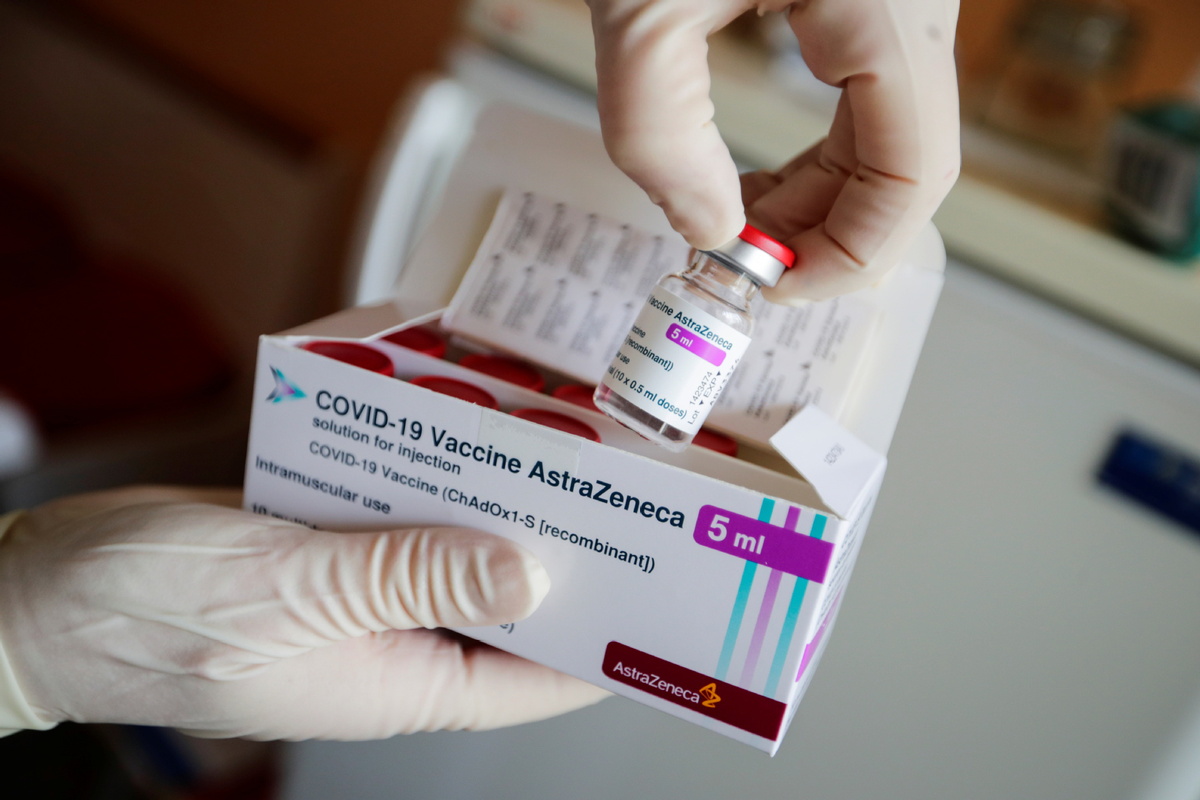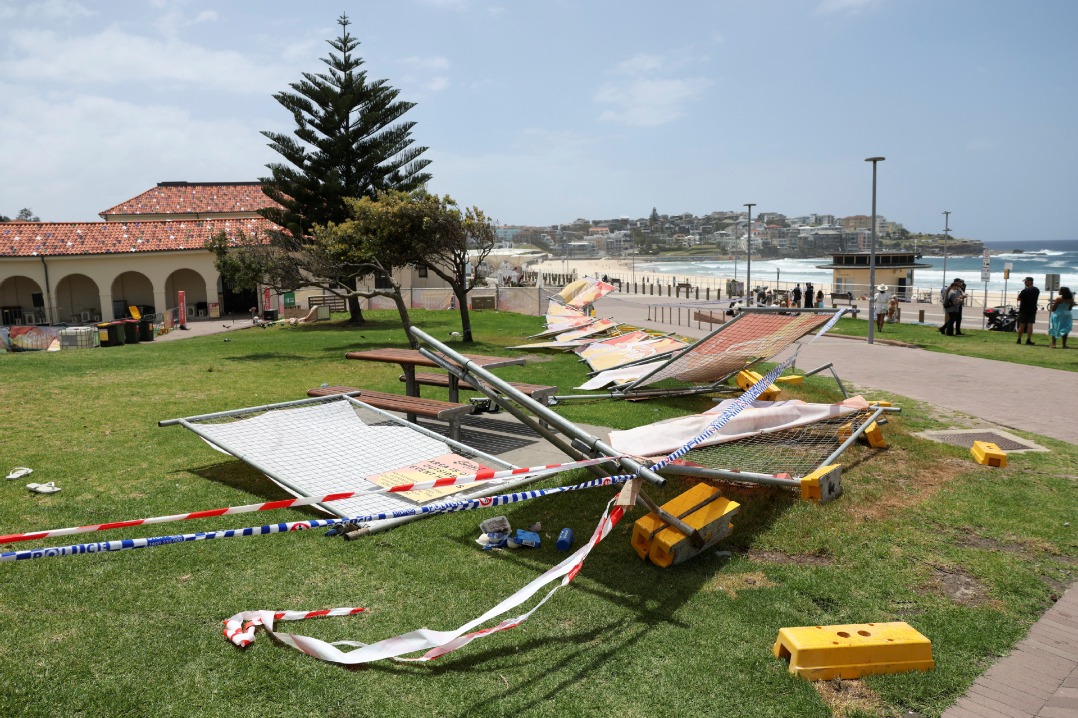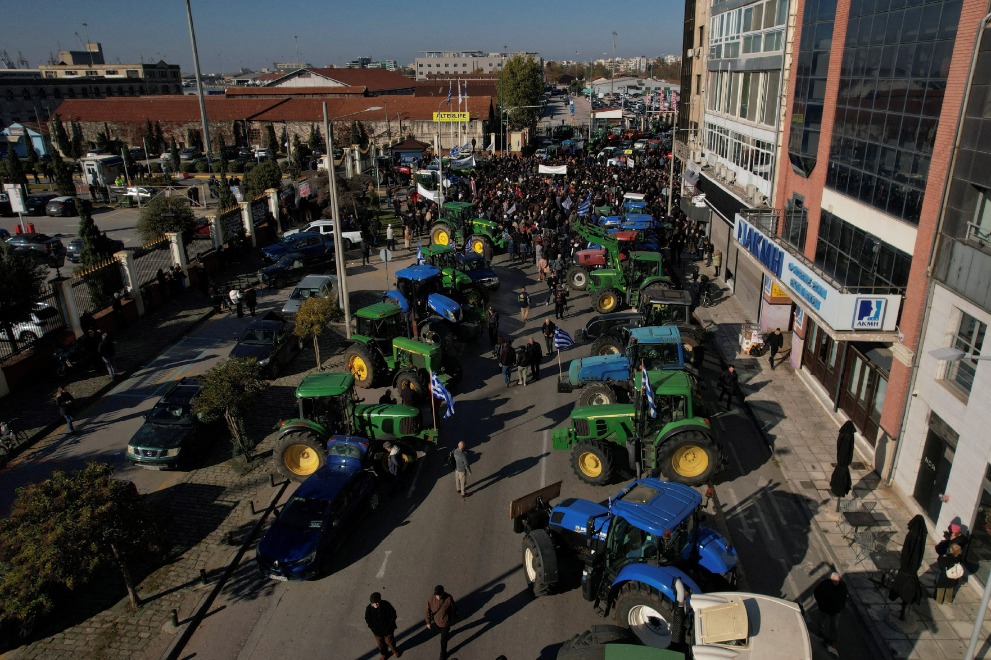EU nations await review of 'Oxford' inoculation


Experts are looking at whether blood clots could be connected to injections
The European Medicines Agency is expected to share findings on Thursday from its evaluation of incidents of blood clotting among people who had received the Oxford/AstraZeneca novel coronavirus vaccine as more European Union member states, including Germany, France, Italy and Spain, suspended use of the jab.
In a news briefing on Tuesday, the EMA said there was "no indication" that the AstraZeneca vaccine is the cause of the reported blood clots, and said it was "firmly convinced" the benefits of the jab outweighed the risks.
But there has been confusion in some EU nations, with vaccination centers in Italy and Germany abruptly closing their doors, The Guardian reported.
Experts in Germany have expressed concern that the pause in the rollout would "threaten more lives than it might save", the paper said, adding that the Russian-made Sputnik V vaccine could now become more prominent in the program.
The Times quoted senior medical figures in Germany as saying the suspension was a "catastrophe" that would needlessly damage public trust.
Germany's national disease center warned that the country is now in a third wave, and that suspending the vaccine for just one week could cost the economy 1.7 billion pounds ($2.37 billion).
Germany's health minister, Jens Spahn, moved to suspend the Oxford jab on Monday, following seven reported cases in the country of blood clots including deep vein thrombosis in people who had recently received the vaccine, three of which were fatal, Reuters reported.
Nicola Magrini, the director general of Italy's medicines authority AIFA, told daily newspaper La Repubblica that he believed the choice to suspend the AstraZeneca shot was "political "and that the vaccine was safe and that the benefit to risk ratio of the jab is "widely positive".
He said: "We got to the point of a suspension because several European countries, including Germany and France, preferred to interrupt vaccinations ... to put them on hold in order to carry out checks. The choice is a political one."
Germany, France and Italy hinted that they were ready to lift their bans on AstraZeneca as soon as the EMA gave the green light on Thursday, the Daily Telegraph reported.
EMA chief Emer Cooke said at the briefing that it was important to maintain public trust in vaccines in order to beat the novel coronavirus pandemic.
She said: "The number of thromboembolic events in the vaccinated people, overall, seems not to be higher than that seen in the general population."
The French newspaper Le Monde said in an editorial that the success of a vaccination campaign was "as much about the effectiveness of the vaccine as about the confidence it inspires" and the second condition "has just been seriously shaken" in the case of the AstraZeneca jab.
The Times reported on Wednesday that some patients in the United Kingdom have become uneasy about receiving the AstraZeneca vaccine.
Doctors and National Health Service officials said they shared the concern of their counterparts in European countries that the news would harm confidence in the jab.
Sarah Jarvis, a local doctor in the UK, told Times Radio that about 10 percent of those due to come in for vaccination were "just not showing up to their appointments or [trying] to cancel them or postpone them or ringing up to check whether they're getting the Pfizer vaccine or AstraZeneca".
It comes as the European Commission rebuked EU member states for supposedly stockpiling vaccine supplies and urged nations to use every dose they had.
The Daily Telegraph reported that EU member states have received 62.2 million vaccines under the joint procurement program run by Brussels. The paper said EU nations "had administered 77 percent of those, or 48 million doses", and that "about 14.8 million AstraZeneca vaccines have been delivered to EU countries, with less than half, 7.3 million, being used".
Following a meeting of EU health ministers, Stella Kyriakides, the European health commissioner, was quoted to have said: "Even with the immense and regrettable challenges around production capacity and deliveries, there are reports of unused reservoirs of vaccines across the European Union."
She added: "We currently see the proportions of available vaccine doses distributed range from 50 to 100 percent across member states."
































